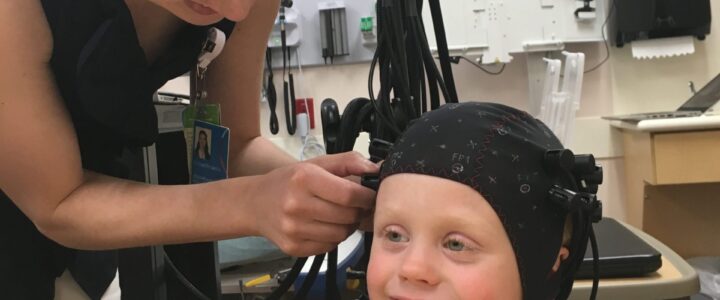FRAXA Research Foundation has awarded a $90,000 research grant to Dr. Craig Erickson and Dr. Elizabeth Smith at Cincinnati Children’s Hospital to test functional near-infrared spectroscopy (fNIRS), in children who have Fragile X syndrome. fNIRS is safe, non-invasive, and easily-tolerated. It uses light sources and sensors on the scalp to build a heat map of the brain in action.
Read moreEEG
Results Reported: Using EEG Responses to Sound for Fragile X Drug Discovery
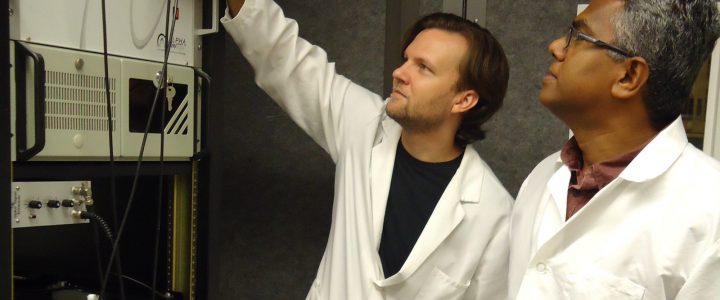
Jonathan Lovelace, a FRAXA funded Postdoc at UC Riverside, has made some exciting EEG findings over the past few years studying auditory hypersensitivity in mice and therapeutic drug treatments. A big obstacle in FXS research has been establishing reliable, unbiased, and translation relevant biomarkers that can be used to determine the effectiveness of therapies. One of the most important discoveries they have made is the striking similarity in EEG biomarkers between mice and humans.
Read moreShould You Participate in a Fragile X Clinical Trial?

A Fragile X clinical trial of a new PDE4D allosteric inhibitor from Tetra Therapeutics is nearly complete. Right now there are 3 remaining spots open to males 18-45 years of age with Fragile X syndrome. Dr. Elizabeth Berry-Kravis at the Rush University Medical Center in Chicago is leading this trial. The drug being studied has a unique mechanism of action that might improve cognitive and memory function.
Read moreGene Therapy Translational Studies for Fragile X Syndrome

With this $90,000 award from FRAXA Research Foundation, Drs. Ernest Pedapati, Christina Gross, and student Lindsay Beasley will pursue preclinical gene therapy approaches using AAV (adeno-associated virus) vectors for treating Fragile X syndrome at Cincinnati Children’s Hospital. Dr. Craig Erickson elaborates about this in this video.
Read moreFinding Fragile X Biomarkers – From Transcriptomics to Behavior in Patients

With this $20,000 award from FRAXA Research Foundation, Dr. Vanderklish and collaborators at Scripps Research Institute, the University of Chile, and the FLENI Institute in Argentina are analyzing patterns in gene expression in blood cells of patients with Fragile X syndrome. They are using “transcriptomics” which can produce a time-sensitive signature of an individual person. This is the first time that all these different levels of study – from transcriptomics to behavior – have been done for individual patients with Fragile X.
Read moreUnderstanding and Reversing Hypersensitivity to Sounds in Fragile X Syndrome
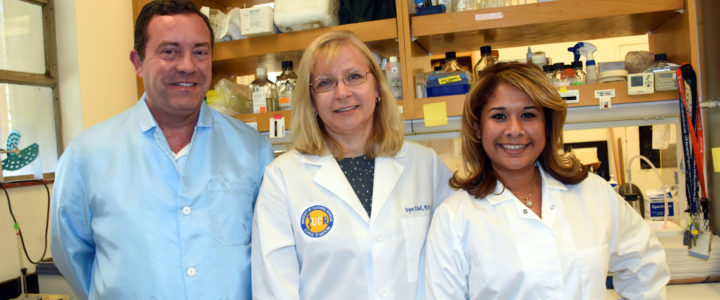
With a $90,000 grant from FRAXA Research Foundation over 2018-2019, Drs. Devin Binder, Iryna Ethell, and Patricia Pirbhoy at the University of California at Riverside aim to understand – and reverse – hypersensitivity to sound in Fragile X syndrome.
Read moreFRAXA Funded Researchers Present at MA Fragile X Conference

On Saturday Boston Children’s Hospital (BCH) hosted a Fragile X educational conference. Success Strategies for Individuals and Families Impacted by Fragile X and two of our funded researchers, Dr. Craig Erickson, and Carol Wilkinson, MD, PhD, presented giving an update on their current Fragile X clinical trials. Both being funded by FRAXA.
Read moreIn Their Own Words: Reports From the International Fragile X Workshop

The 18th International Fragile X and Related Neurodevelopmental Disorders Workshop in Quebec, Canada, was a great success, featuring Fragile X much more heavily than any previous meeting in this series! We asked our speakers to summarize their work in their own words, with brief updates from researchers investigating Fragile X.
Read moreBrain Imbalance Target of Dr. Erickson’s New Clinical Trial

According to Dr. Erickson, AZD7325 is a drug that selectively boosts GABA neurotransmission in the brain. GABA is the primary neurochemical in the brain that blocks brain activation. GABA activity is in balance in the brain with Glutamate activity, which is the primary neurochemical that causes brain activation. In Fragile X, GABA activity is insufficient and glutamate activity is excessive, likely causing brain activity to be out of balance. AZD7325 attempts to correct parts of this imbalance by boosting the insufficient GABA activity in the brains of people with Fragile X.
Read moreCombinatorial Drug Treatment in a Model of Fragile X Syndrome using Novel Biomarkers

With a $90,000 grant from FRAXA Research Foundation awarded over 2016-2017, University of California researchers Khaleel Razak, PhD, and Jonathan W. Lovelace, PhD, are exploring drug combinations to limit hypersensitivity to sounds in Fragile X mice.
Read moreNeural Markers of Fragile X: A Powerful New Tool for Clinical Trials
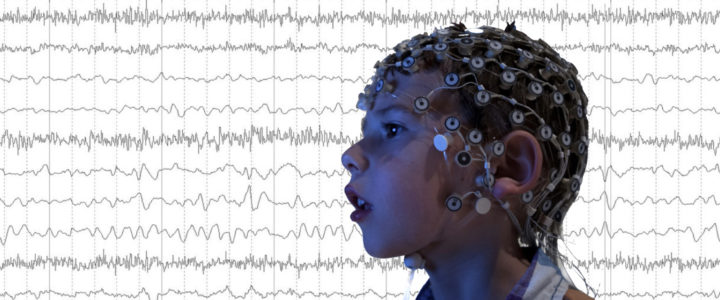
Once the neural marker is identified for a particular challenge, such as kids with poor language versus good language, neural markers can be measured during drug and behavioral therapy trials to see if a child is improving based on objective biological measures.
Read morePreclinical Testing of Sleep-Wake Patterns as an Outcome Measure for Fragile X

FRAXA Research Foundation awarded $122,000 over 2016-2018 to Dr. Cara Westmark at the University of Wisconsin at Madison for studies of sleep disorders in Fragile X syndrome.
Read moreKimberly Huber, PhD, Explores Hyperexcitability in Fragile X Syndrome
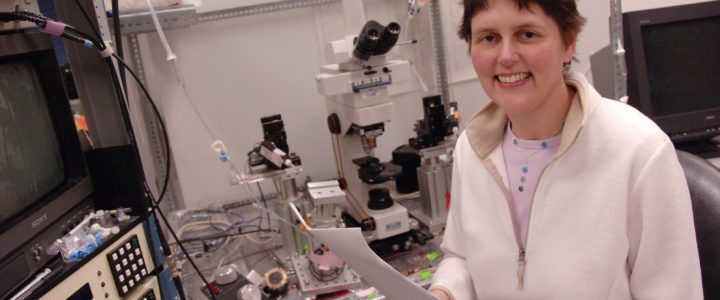
Ever wonder why your child with Fragile X suddenly screams for no apparent reason or jumps and flaps uncontrollably seemingly for hours? You got it: hyperexcitability. But what exactly causes it? And what can fix it? Kimberly Huber, PhD, is working long and hard in her lab to answer those questions. Dr. Huber, professor, Neuroscience, UT Southwestern Medical Center, is seeking to understand how FMRP regulates connections between brain cells, called synapses, and the function of brain circuits, which are several connected brain cells.
Read more
